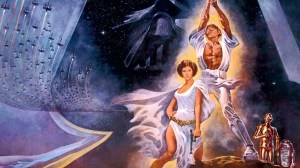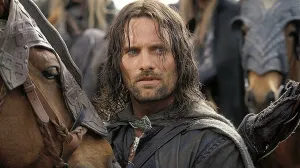Robert Kirkman defended his recently ended book against criticisms it had grown “repetitive,” saying at San Diego Comic-Con Thursday he surprise ended The Walking Dead with issue #193 in part to avoid it ever becoming “repetitious.”
Videos by ComicBook.com
“I know people criticize the book for being repetitious sometimes,” Kirkman told the crowd gathered for his In Conversation panel. “I go on the internet. I’m human, and I go on the internet and see things that make me sad. And then I go back on the internet to look for more things to make me sad.”
For Kirkman, who has penned the zombie book without pause since 2003, “I feel like the story wasn’t repetitious,” he added.
“I felt like it escalated. But I was acutely aware of how it could become repetitious and I really wanted to avoid that. I wanted there to be a narrative flow, and in order to achieve that, I knew I would have to wrap it up.”
It was during a Comic-Con visit in 2013 where Kirkman first told artist Charlie Adlard the gist of the final issue, which ended with an older Carl Grimes happily married to longtime friend Sophia and father to a healthy little girl, Andrea, named in honor of his late adopted mother.
Kirkman knew how the book would end, but not when. Upon reaching issue #142, set during the conflict with the Whisperers that preceded the Commonwealth storyline that would dominate the book until its close, Kirkman realized he “didn’t have enough story worked out” to reach issue #300.
That meant wrapping the book earlier than he anticipated.
As Kirkman revealed in a multi-page letter when signing off the book’s final issue, the book nearly ended at the conclusion of “No Way Out” (issues #79—84). That arc closed with Rick Grimes rallying the Alexandrians to defend their walled-off community from an invading horde of walkers before declaring an end to his pack of survivors’ nomadic ways.
In his original ending, Kirkman would have jumped the series forward many years, revealing a statue immortalizing the legendary Rick Grimes. Zooming out would further reveal the statue was quite old, and Alexandria was dilapidated and overrun by walkers.
The pages would indicate Rick succeeded in rebuilding civilization only for society to collapse again, seemingly for good, leaving the world to the dead.
Kirkman admitted that “terrible” ending was “bleak, sad,” and “made the whole story pointless.” When explaining his “embarrassingly bad” original ending during his Comic-Con panel, Kirkman said it was a “futile ending.”
“It was me as a young writer figuring out how to cap everything off. It was really unsatisfying, because it made everything pointless,” Kirkman said.
“I considered it, but I was having fun with the book and I kept generating new ideas for the book. When I came up with the idea of the ending, that’s what it brought it about. The ending has purpose. It made everything matter and it gave purpose to everything Rick did, and how he impacted the world. It’s hopeful to see how people who are struggling and dealing with loss are making the world a better place and making a world that’s better and good. Once I came up with the storybook, and [Carl] is reading to his daughter, I became very laser-focused on getting to that moment.”

The ending, as-is, is a relatively happy one and reveals a world no longer dominated by the roaming undead: instead, walkers are rarely seen to the point they’ve become a valuable roadside attraction.
“For the characters inside the story, in hindsight, it’s a better world than what came before. It’s a world where people appreciate things more, come together, work together to solve problems instead of fighting and picking problems,” Kirkman said of the survivors who made it through “the trials,” the in-universe name for the era explored in issues #1-192.
“People have been pushed to their limits, and they are in a mindset that’s different from where we are now. It’s a more peaceful world and it makes people appreciate what they have more. That’s the message: the zombie apocalypse happens, people die, but at the end of the day, you learn to appreciate what you have.”








